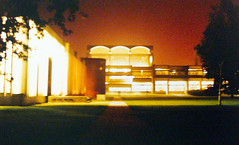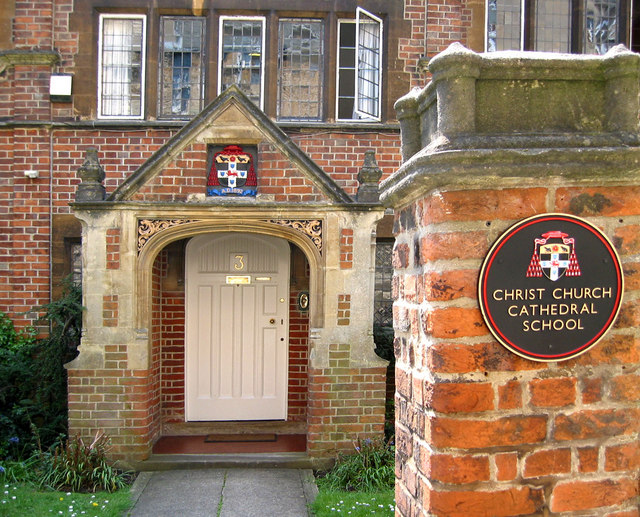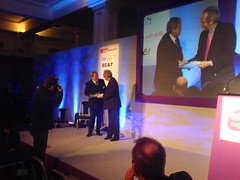A learning journey
Oct 21, 2009
A personal reflection on my ‘learning journey’, written as an exercise for Roehampton’s PG Certificate in Learning and Teaching in HE.
Education is something I care passionately about. I love to learn new things, I love to share the things I learn with others; I feel fortunate to follow a career which allows me to do something I love doing for my job!
A number of themes emerge from the way points I’ve selected from my personal learning journey – autonomy and independent learning, participation in a community of practice and a willingness to pursue excellence. These are factors which fit well with IT as my subject domain; computers and the net are great tools to facilitate independent, autonomous learning, the web has made it much easier to participate in distributed communities, both formal and informal, and the interactive, provisional nature of computer based work facilitates an iterative process of development. These shouldn’t detract from the idea that learning is fun. Right from early years up, discovering new things about ourselves and our world is, I’m sure, an intrinsically exciting, fulfilling thing. Enjoyment features highly too in my experience of technology, and my aspirations for IT education.
So, to begin at the beginning. My earliest memories are of a contented, loving, although far from lavish home life, of my father working long hours and falling asleep in the evenings, of my mother’s unselfish care for my sister and I as we grew up, of the conversations, books, walks, museum trips, recorded music and, I’ll admit, TV that filled home life.
 School, I think, took a while to get used to: we were quite an insular family and I think it took me a while to make friends. I remember being frustrated by how easy much school work seemed – my impression is one of purposeful activity rather than new learning, by and large. I recall working on wonderfully baroque designs and stories, which would extend well beyond the time of a single lesson.
School, I think, took a while to get used to: we were quite an insular family and I think it took me a while to make friends. I remember being frustrated by how easy much school work seemed – my impression is one of purposeful activity rather than new learning, by and large. I recall working on wonderfully baroque designs and stories, which would extend well beyond the time of a single lesson.
Learning beyond the school curriculum became increasingly important to me as I moved up through primary and secondary school, not always to good effect. I suffered somewhat from a butterfly approach, becoming almost obsessively fascinated about with one area or another for a while before moving on to another. Some of these, like programming and ‘recreational’ mathematics, I would subsequently return to, others like poker and Dungeons and Dragons (!) were, in retrospect, not a particularly productive way to spend my time. I fear I lacked the self-discipline to pursue a single area with the focus necessary to develop expertise beyond competence. Radio 4 also figured highly throughout my secondary school years, and indeed beyond, appealing greatly to my butterfly approach to learning.
 Libraries have held a special place in my affection from early days on, starting with my parents’ book collection and my own books (much more non-fiction than fiction in both of these collections); the local town library, from which I would borrow large books on all kinds of areas; the school library, and my indignation that as a first year I wasn’t allowed to borrow a book on trigonometry that had caught my eye; Loughborough university library, which we could use as sixth formers; the college, department and the university library at Cambridge, this latter again used for reading on art and theology, way beyond the confines of my maths degree; and then, for research on my MBA, the British Library itself; one of my favourite places and usually featured in my slides for keynotes if I can get it in. With this love of information, it’s perhaps not too surprising that I took to the ‘net quite early on, and that the web has featured extensively in my creative work.
Libraries have held a special place in my affection from early days on, starting with my parents’ book collection and my own books (much more non-fiction than fiction in both of these collections); the local town library, from which I would borrow large books on all kinds of areas; the school library, and my indignation that as a first year I wasn’t allowed to borrow a book on trigonometry that had caught my eye; Loughborough university library, which we could use as sixth formers; the college, department and the university library at Cambridge, this latter again used for reading on art and theology, way beyond the confines of my maths degree; and then, for research on my MBA, the British Library itself; one of my favourite places and usually featured in my slides for keynotes if I can get it in. With this love of information, it’s perhaps not too surprising that I took to the ‘net quite early on, and that the web has featured extensively in my creative work.
 School work had been, by and large, pretty straightforward, especially in maths and the sciences, where I generally could work things out by having a good grasp of the principles rather than memorizing stuff – an approach that didn’t really do me any favours in foreign languages, something I’ve come to regret. I’d enjoyed the occasional coursework projects that captured my imagination – on more than a few occasions going way beyond the requirements of the tasks set. Mathematics, however, at Cambridge was hard. Really hard. That first weekend with a set of introductory problems to solve after the fun of freshers’ week was probably the first time when I had to deal with subject matter that I just couldn’t get. I persevered and survived the three years, becoming a better, more rounded, more sociable person in the process but emerging with a mediocre degree! I’d spent some time helping in a local school during my undergraduate days, and, I still quite liked mathematics, so on to the PGCE. This was a great year; undoubtedly the best of my four: after three of maths, the opportunity to discuss ideas was something I really relished, particularly on Terry McLauglin’s excellent philosophy of education module in the third term.
School work had been, by and large, pretty straightforward, especially in maths and the sciences, where I generally could work things out by having a good grasp of the principles rather than memorizing stuff – an approach that didn’t really do me any favours in foreign languages, something I’ve come to regret. I’d enjoyed the occasional coursework projects that captured my imagination – on more than a few occasions going way beyond the requirements of the tasks set. Mathematics, however, at Cambridge was hard. Really hard. That first weekend with a set of introductory problems to solve after the fun of freshers’ week was probably the first time when I had to deal with subject matter that I just couldn’t get. I persevered and survived the three years, becoming a better, more rounded, more sociable person in the process but emerging with a mediocre degree! I’d spent some time helping in a local school during my undergraduate days, and, I still quite liked mathematics, so on to the PGCE. This was a great year; undoubtedly the best of my four: after three of maths, the opportunity to discuss ideas was something I really relished, particularly on Terry McLauglin’s excellent philosophy of education module in the third term.
 The opportunities to talk about education seemed few and far between in my first teaching post, but became more common occurrences in my second post, thanks to an enlightened, liberal, intelligent head teacher and a critical mass of folk on the staff sufficiently interested in education rather than just the processes of school; something I failed to achieve in my own stint at headship, despite noble ambitions in that direction. Taking on responsibilities for coordinating IT (and running the network) alongside maths in this post provided plenty of scope for my own professional development: through learning enough about the tech to solve problems and achieve the goals I’d set myself and through engaging with the professional community through the still embryonic web and face to face conferences. It’s interesting to think back to those days and how the web was already allowing, and indeed encouraging, distributed communities of practice to form around domains of knowledge, with IT stealing a march on other school subject areas.
The opportunities to talk about education seemed few and far between in my first teaching post, but became more common occurrences in my second post, thanks to an enlightened, liberal, intelligent head teacher and a critical mass of folk on the staff sufficiently interested in education rather than just the processes of school; something I failed to achieve in my own stint at headship, despite noble ambitions in that direction. Taking on responsibilities for coordinating IT (and running the network) alongside maths in this post provided plenty of scope for my own professional development: through learning enough about the tech to solve problems and achieve the goals I’d set myself and through engaging with the professional community through the still embryonic web and face to face conferences. It’s interesting to think back to those days and how the web was already allowing, and indeed encouraging, distributed communities of practice to form around domains of knowledge, with IT stealing a march on other school subject areas.
 The greater autonomy which my move to deputy head and information systems manager brought provided opportunities to start setting an agenda and engaging in informal action research at classroom level. I started studying for an MBA in education management at this point, following a distant learning route, which allowed me to explore my own interests within the course’s framework; in retrospect I wish I’d had more opportunities for face to face conversations as part of this study. Professional development through conferences, rather than courses, went some way to filling the gap; one course though, David Burghes on a social constructivist approach to mathematics education had a lasting impact on my approach to web based learning. My MBA readings had already suggested an interesting avenue using IT to help manage a school’s knowledge, and then Becta’s 2004 research conference hinted at schools in the US that had been virtualizing parts of their curriculum, thus prompting my work exploring if and how VLEs would work in primary education. This work really took off, providing so many opportunities to engage with the wider ed-tech community beyond my classroom and school and, I hope, contribute something to the national discussions taking place around a new technology. I found this hugely rewarding, both personally and professionally.
The greater autonomy which my move to deputy head and information systems manager brought provided opportunities to start setting an agenda and engaging in informal action research at classroom level. I started studying for an MBA in education management at this point, following a distant learning route, which allowed me to explore my own interests within the course’s framework; in retrospect I wish I’d had more opportunities for face to face conversations as part of this study. Professional development through conferences, rather than courses, went some way to filling the gap; one course though, David Burghes on a social constructivist approach to mathematics education had a lasting impact on my approach to web based learning. My MBA readings had already suggested an interesting avenue using IT to help manage a school’s knowledge, and then Becta’s 2004 research conference hinted at schools in the US that had been virtualizing parts of their curriculum, thus prompting my work exploring if and how VLEs would work in primary education. This work really took off, providing so many opportunities to engage with the wider ed-tech community beyond my classroom and school and, I hope, contribute something to the national discussions taking place around a new technology. I found this hugely rewarding, both personally and professionally.
Completing my MBA and moving to headship was, I think, something of an anticlimax for me, and whilst I kept up, and indeed increased, my involvement in the education and technology communities, fitting this in with the ‘day job’ was a challenge. I became increasingly aware that it was my participation in these communities beyond my school that I relished, and that allowed me to make a more significant contribution than through headship.
This brings me, at last, to Roehampton, to teacher training and to academic life. I’m excited about the opportunities to share my insights and experiences of ICT education with the next generation of teachers, by the opportunities to get back to academic research, hopefully not too far removed from the cutting edge, and for more time to engage with these wider debates around education.
Share